Potential risks of food safety and hygiene during Tet holiday
“Dirty food” is one of the most mentioned phrases in recent years. As Tet approaches, the demand for food consumption increases, and this concern becomes even more present.
Worried about dirty food
In the days before Tet, at the Green Market area, Dien Thanh town, Dien Chau district, reporters recorded that fresh food, cakes, jams, and fruits for Tet were sold in large quantities with a large number of buyers. However, the situation of food hygiene and safety still occurred.
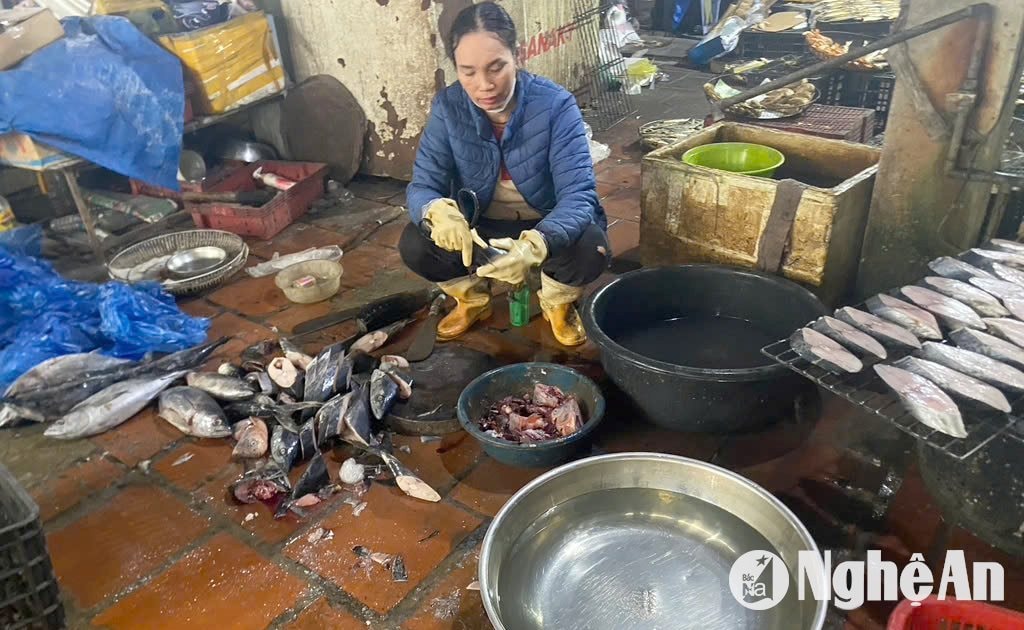
There are no tables in the seafood processing and grilling area at the market; all the steps are done by the vendors right on the tiled floor. Each piece of fish that is sliced and ready to be grilled is left on the ground with dirty water all over it, making many people feel apprehensive.
Not far away are stalls selling pork, beef and processed meat products such as sausages, Chinese sausages, etc. According to the reporter's records, these stalls do not have nets or screens to protect against flies, some vendors even use their bare hands to pick up meat to sell to customers. At the poultry stall, many cages of chickens, ducks, geese, etc. are placed on the drain covers. The stench of wastewater from poultry slaughter permeates a corner of the market.
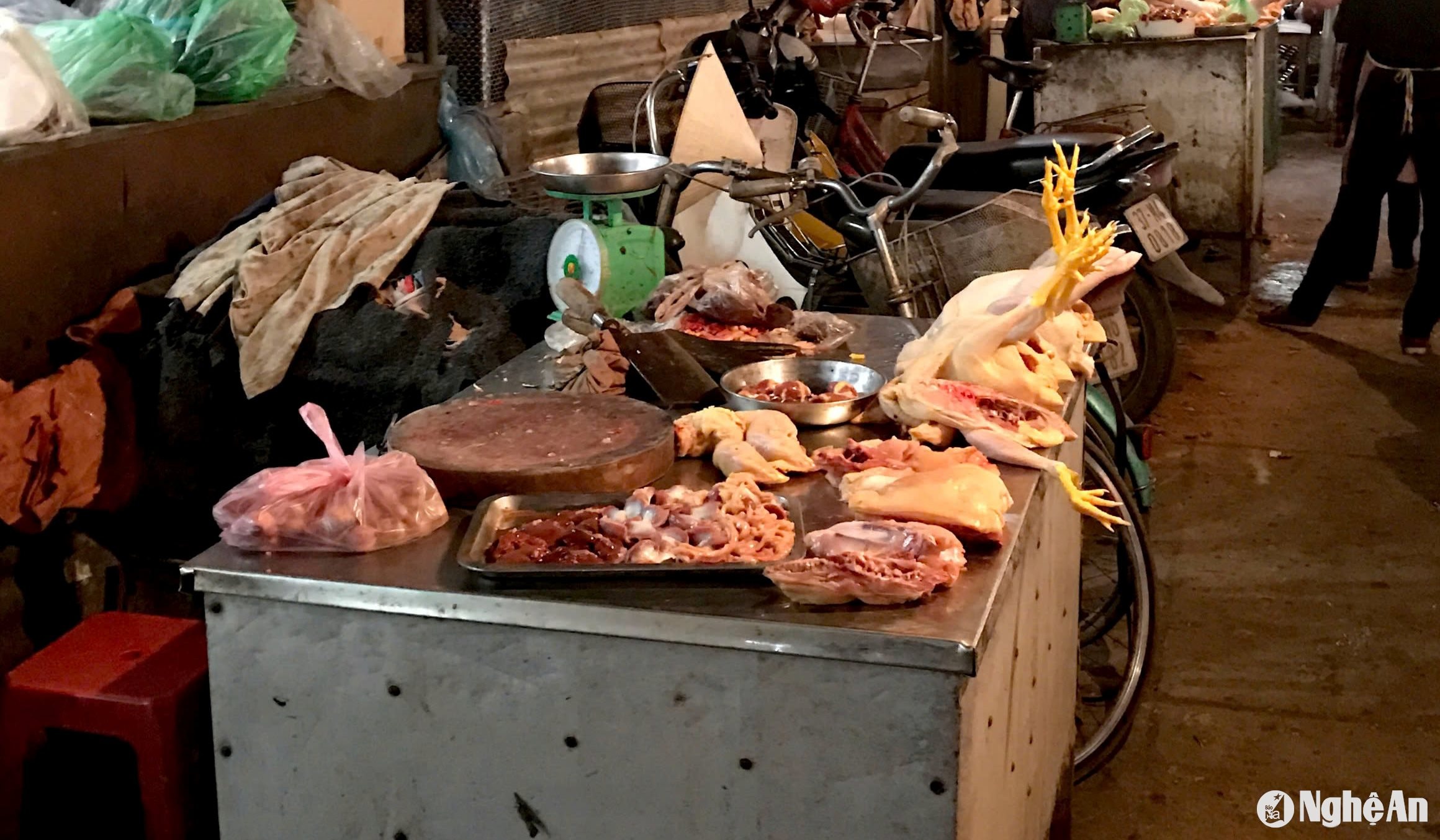
Mr. Tran Dang Trung - Chairman of Dien Thanh Town People's Committee said: Currently, there are 3 markets in the area, including Xanh Market, Afternoon Market and Phu Dien Market. The Xanh Market area has been facing difficulties for a long time due to lack of synchronous infrastructure investment, which has somewhat affected food hygiene and safety. After receiving feedback, Dien Thanh Town will conduct an inspection at the market area to rectify the situation of food hygiene and safety to ensure safety for consumers.
At the market in Hoa Thanh town, Yen Thanh district, many fresh agricultural products such as fruits, vermicelli, frozen foods, etc. are also sold, but most of them have no packaging, labels, and unknown origins. Other fresh foods such as fish, shrimp, and prawns are also sold and processed right on the market floor, posing a potential risk of contamination.
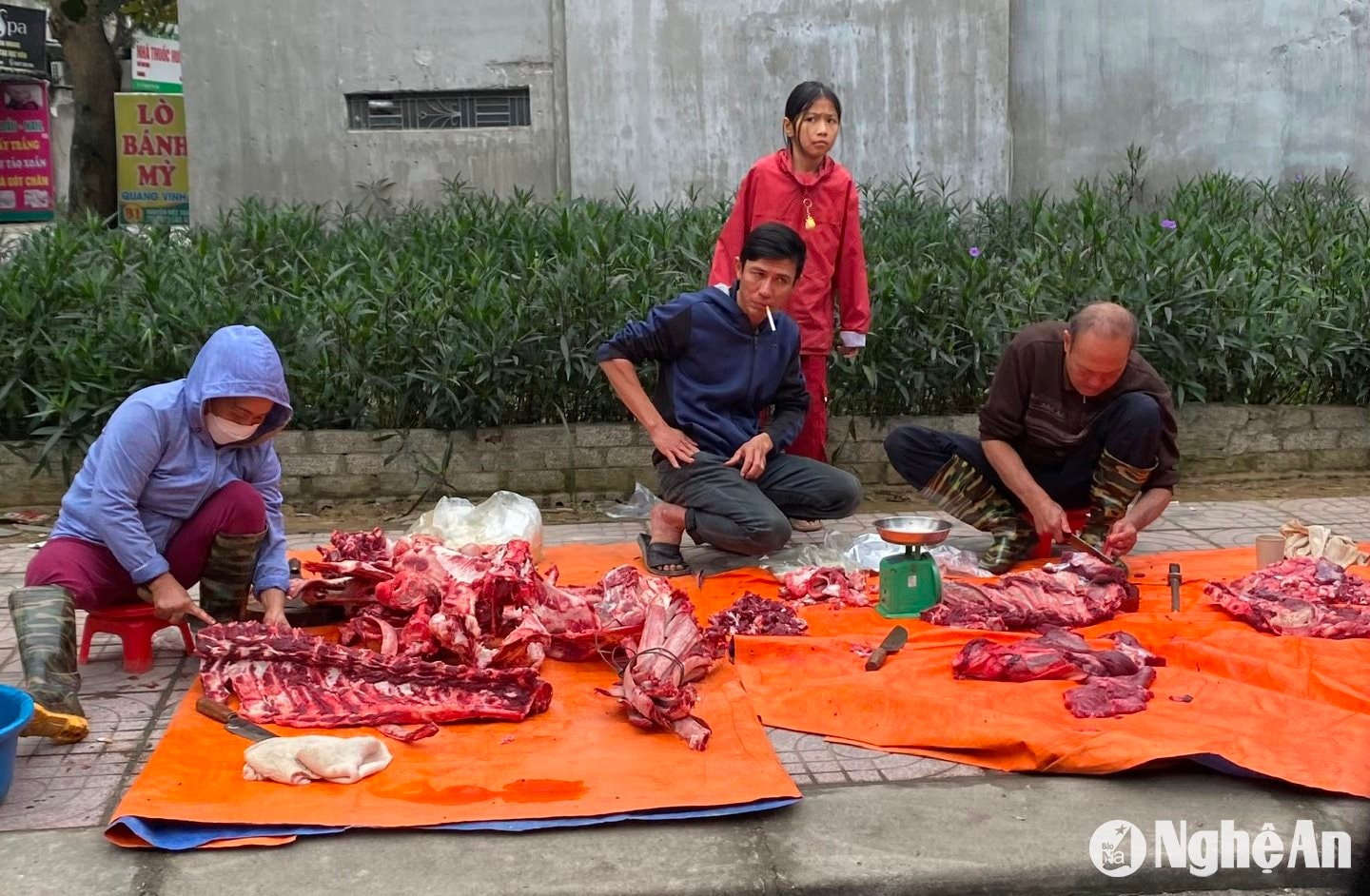
Ms. Phan Thi Tuyet - Head of the Health Department of Yen Thanh district said: In the district, there are 2,602 food production and trading establishments, including 21 markets. Up to now, the district has upgraded 10 markets, however, food hygiene and safety in the district still has many problems, especially in markets that have not been upgraded, such as there are still a number of establishments that have not been granted certificates of eligibility and signed commitments on food hygiene and safety, and there is still a situation of slaughtering livestock and poultry at home. Some localities have not really paid attention to directing food hygiene and safety in their areas of responsibility; have not closely followed and promptly implemented documents from higher levels...
Not only in rural markets but also in Vinh City, the situation of food safety and hygiene is still recurring. According to statistics, the whole city has 26 markets in operation, including large markets, which are the trading centers of the province such as Vinh market, wholesale markets, Vinh Railway Station market... However, according to records, food of unknown origin still appears in these markets.
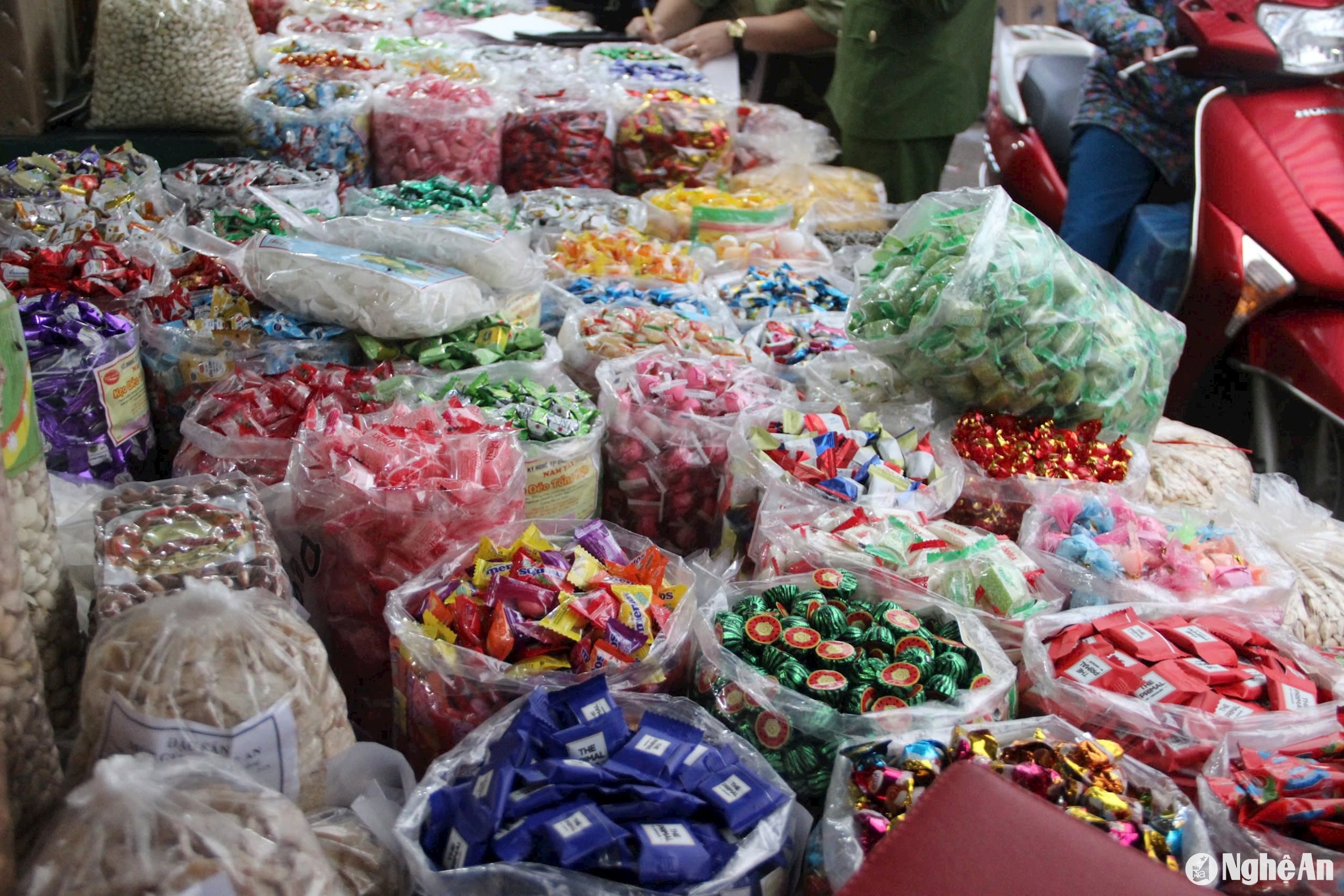
According to records, at Vinh market, the largest market in Nghe An, people have started shopping for Tet goods, in which, candy stalls are crowded with buyers. At the entrance to the West Communal House of Vinh market, there are dozens of stalls selling candy with a variety of types, arranged quite eye-catching, especially candies and bird's nest candies that account for a large proportion. However, these items have no origin, no secondary labels, no expiration date, and are sold at quite cheap prices... When asked, some small traders hastily took labels to stick on the goods to deal with it.
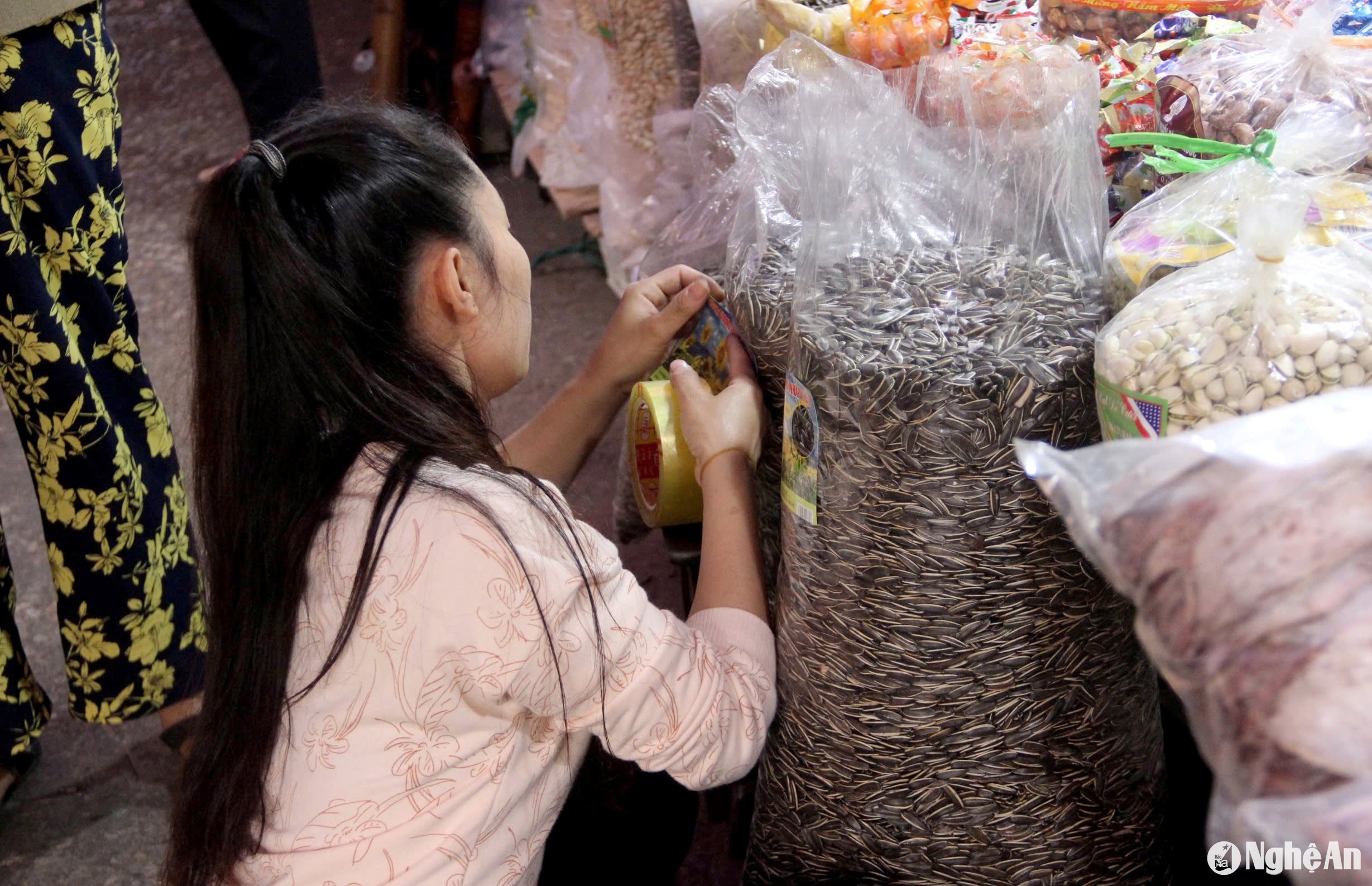
In Vinh City, Hung Chinh slaughterhouse is the only centralized slaughterhouse after Nghi Phu slaughterhouse stopped operating. However, the slaughtering of livestock here does not ensure food hygiene and safety. The work of checking and reminding about food hygiene and safety at this slaughterhouse is still open.
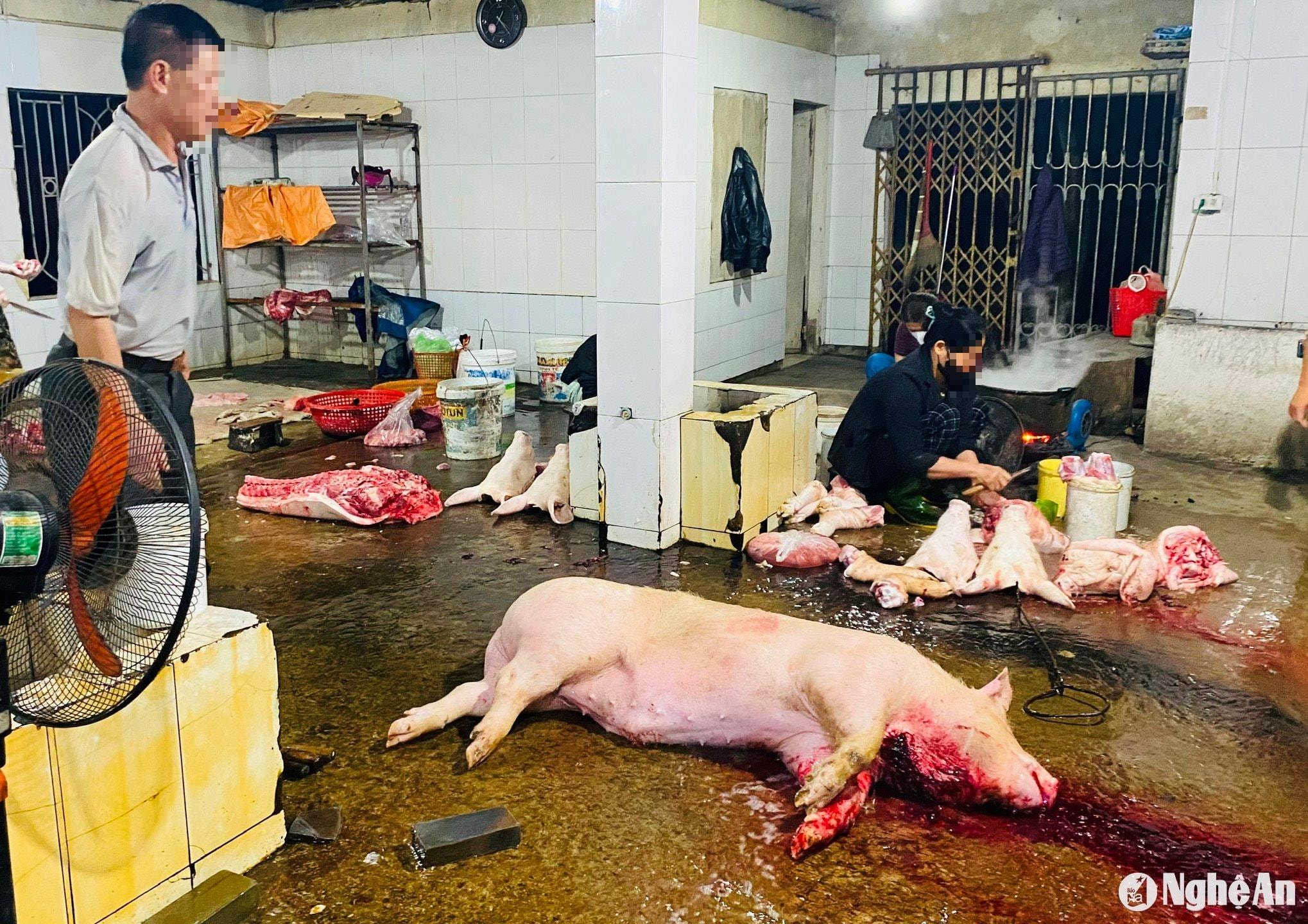
According to statistics from the Nghe An Department of Animal Husbandry and Veterinary Medicine, there are 974 livestock slaughterhouses in the province, of which only 41 are centralized slaughterhouses with regular supervision by veterinary agencies, the remaining 933 are small-scale slaughterhouses. This is an alarming number regarding the risk of food safety and hygiene when small-scale establishments are not regularly monitored and inspected, especially when Nghe An province has had consecutive outbreaks of African swine fever in 2024.
Strengthen inspection
According to the Department of Health, in 2024, the whole province established 1,632 food safety inspection teams with a total of 20,719 inspected establishments, of which 19,870 establishments met the standards (94.69%) and 1,114 establishments violated (5.31%) with a total fine of nearly 3.5 billion VND.
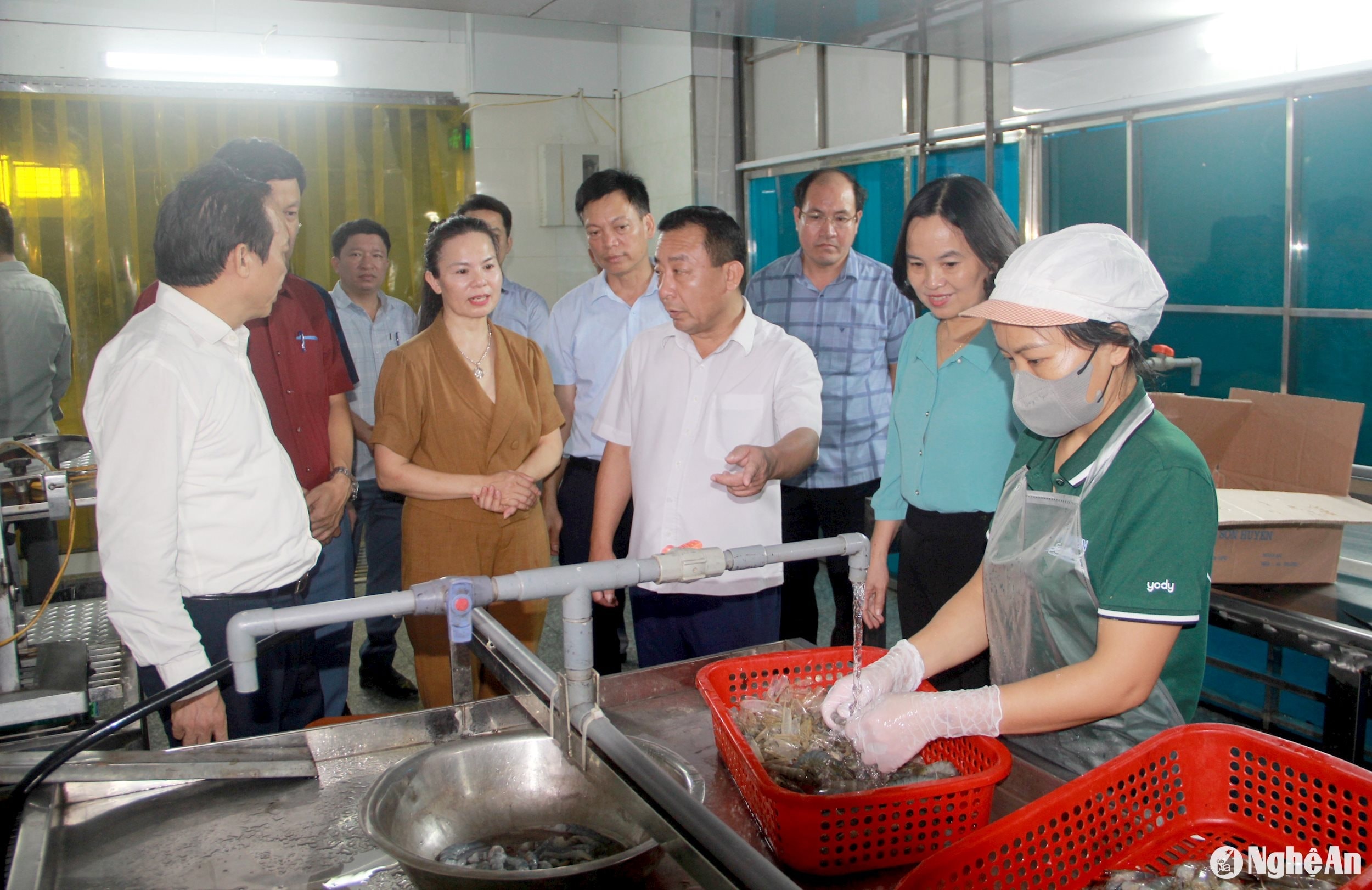
The main violations of food safety are: Production and business establishments in conditional industries without a certificate of food safety eligibility or with an expired certificate; Failure to comply with legal regulations on 3-step food inspection and food sample storage; Persons directly processing food not wearing adequate protective clothing as prescribed; Storage areas and warehouses not being secured; Violations of legal regulations on food preservation; Violations of product quality not ensuring safety...
In 2024, the province recorded 2 cases of food poisoning under the management of district and commune levels, with 77 people infected, no deaths.
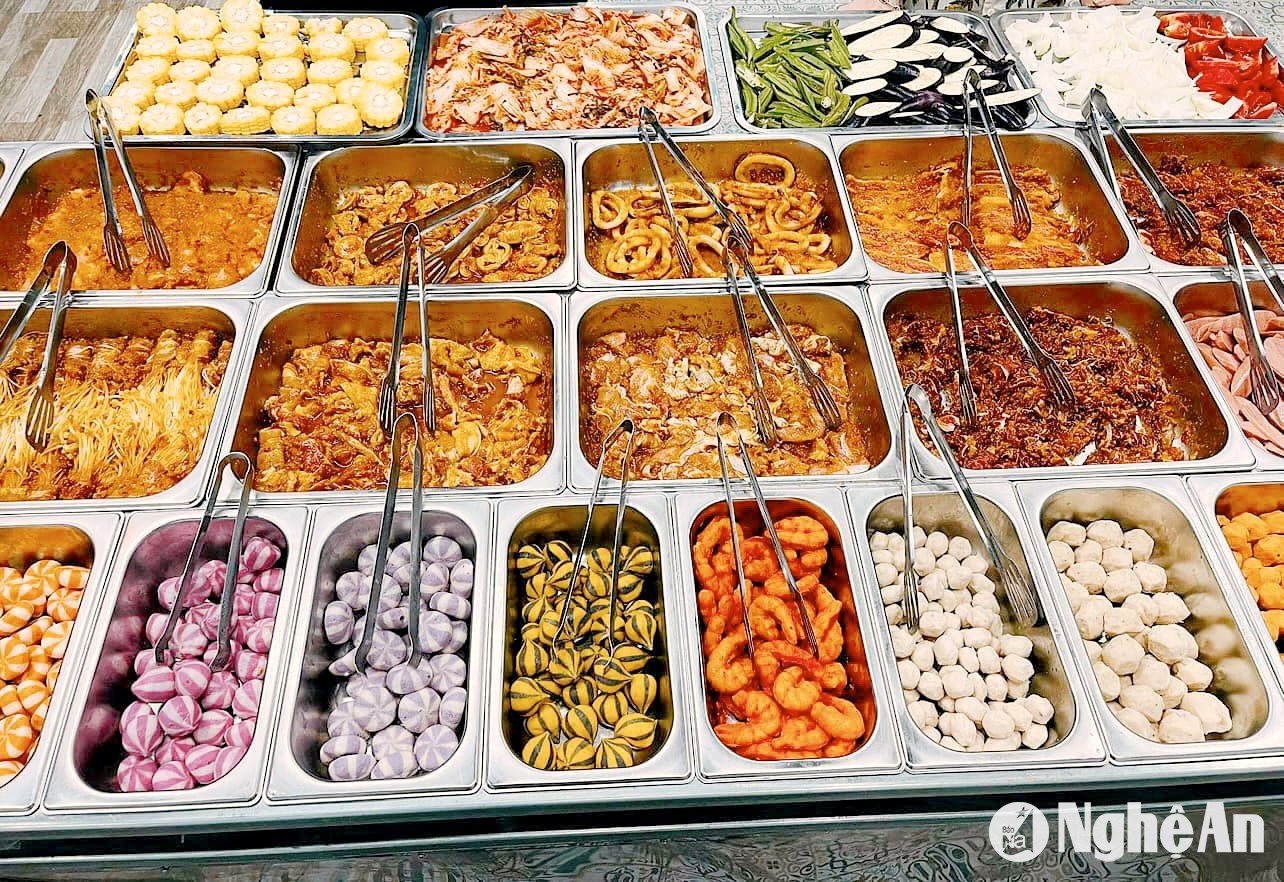
The representative of the Nghe An Food Safety and Hygiene Department said that the food safety inspection work in the province still faces many difficulties, such as: The organization of the state management apparatus on food safety is still scattered, not centralized; Inspection, examination and handling of administrative violations on food safety at the district and commune levels are not regular, mainly only focusing on peak times; The business and advertising of functional foods that violate the law, especially on social networks, are complicated and difficult to manage, affecting the rights of consumers, causing public outrage.
Mr. Nguyen Hong Phong - Deputy Director of Nghe An Market Management Department added: Before, during and after Tet, a lot of food flows into Nghe An, including many items whose origin is unknown when inspected by the authorities such as animal organs, eggs, candy, etc.
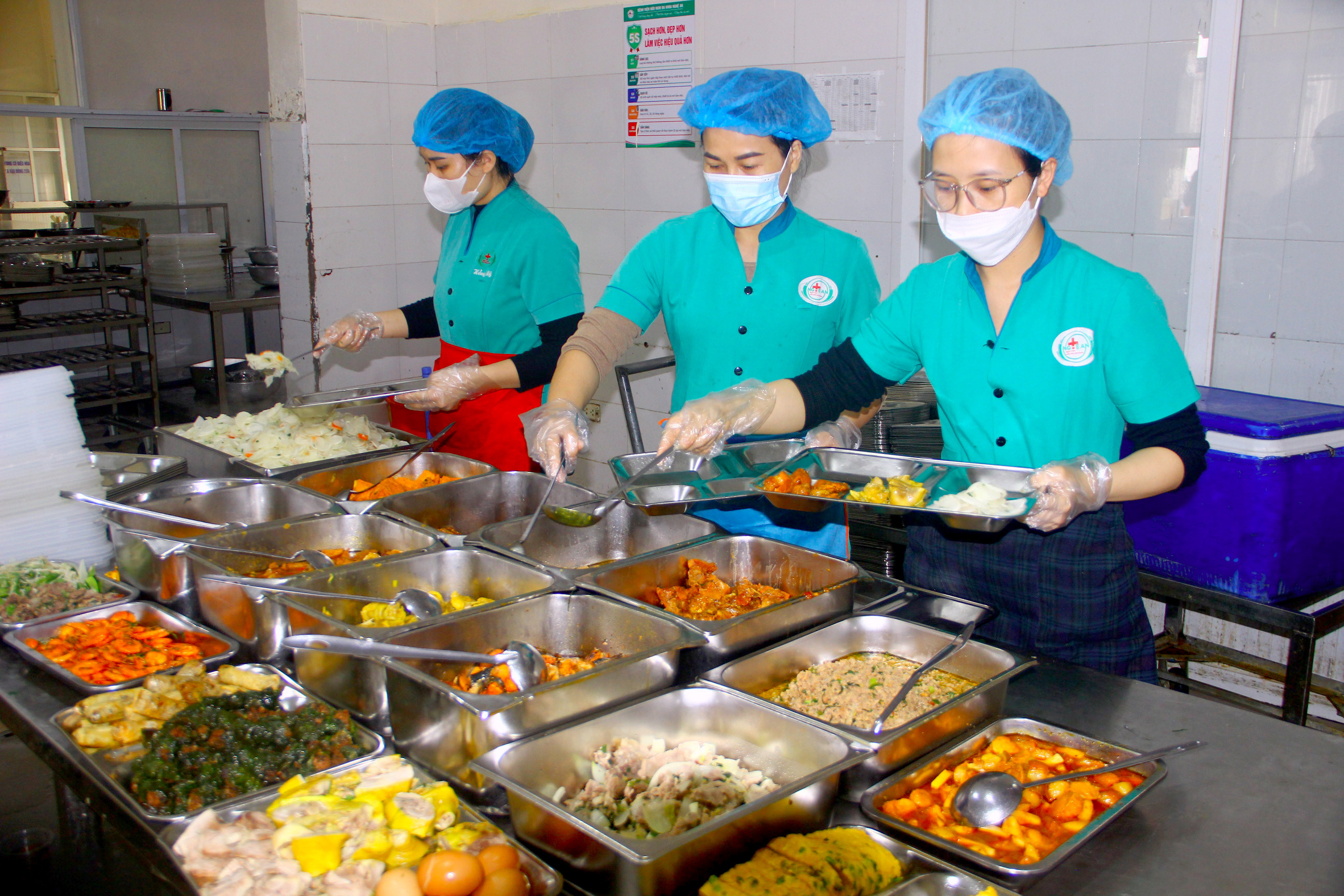
To improve the effectiveness of inspection and handling of violations, the Provincial Market Management Department coordinates with relevant agencies to promote propaganda and dissemination of legal knowledge on food safety to organizations and individuals producing and trading food and consumers; mobilize people to participate in denouncing violations in the production and trading of unsafe food; organize food production, processing and trading establishments to sign commitments to ensure food safety... Regularly organize inspections and handle violations in food business activities, restaurants, markets, food and additive production establishments... in the area.


